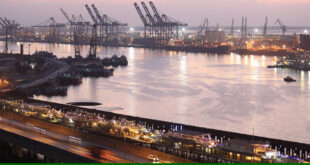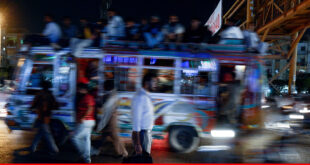Historically, a customs/custom house is a building housing the offices for the government staff that processed the paperwork for the trade of goods into and out of a country while Customs officials also charged customs duty on imported commodities. The house was typically situated near a seaport or in a city on a key river with access to the ocean. These cities performed as a port of entry into a country. The government had officials at such areas to gather taxes and regulate commerce. Because of the latest electronic information systems, the increased volume of foreign trade and the starting of air travel, the house is now often a historical anachronism.
Pakistan Customs is the guardian of Pakistan’s borders against movement of contra band commodities and is a facilitator of real trade. It offers a chief source of income to the government in the form of taxes levied on the items traded across the borders. It also assists to protect the local industry, discourage consumptions of luxury commodities/goods and stimulate development in the under-developed regions. Customs and Regulatory duties value up to 15 percent of the total receipts gathered through Federal Board of Revenue (FBR).
Pakistan Customs is manned by officers from Pakistan Customs Service (PCS) a leading occupational group formed amongst Pakistan’s civil services which was previously called Customs & Excise group. PCS has been formed after the responsibility of sales tax and federal excise has bee taken away and converted into Inland Revenue Service (IRS) to collect sales tax, federal excise and income tax. The move helped PCS to focus more on the core function with guarding the illegitimate trade and regulating bona fide trade on the borders. The formation of IRS has permitted PCS to become a lean and mean service provider with enhanced focus on border control as the role of PCS has been greatly diminished due to the loss of sales tax and federal excise to IRS.
Moreover, the anti-smuggling powers delegated formerly by Pakistan Customs to Frontier Corps (FC) and Pakistan Rangers were withdrawn in view of growth of PCS in border regions and now Pakistan Customs is planning to have an enhanced anti-smuggling function in border regions, which will allow it to play a significant position in national progress.
Since independence Custom House Karachi is situated on the busiest location/side of the city. At that time there was only 1 Collector of Customs and after 1973 the Collectorate of Customs Appraisement fragmented out and there were 2 Customs Collectors i.e. Appraisement and Preventive. Owing to the rush of task and influx of trade, citizens approaching the old Custom House it was felt essential to have a prestigious and new building of the Custom House where the offices could be placed appropriately and the trade as well as officials can perform in a well surrounding. Accordingly in 1979, a piece of land measuring 230,260 sq feet was procured from KPT (Karachi Port Trust). Foundation stone of the building was placed by the then Pakistan’s president General Zia-ul-Haq in March 1979. It took 8-year to complete the 12-storied prestigious building and the building was installed in May 1987 by the then Pakistan’s Prime Minister Mr. M. Khan Junejo. The newly constructed building has 12-floor having covered region of 160,140 sq ft. Besides, the Collectorates of Customs Preventive and Appraisement more offices and Collectorate of the Central Board of Revenue (CBR) were moved in this building. In the year 1990, the Collectorate of Customs Preventive defragmented into another collectorate namely Exports Collectorate. The Collectorate has its headquarters in the similar building. CBR also had its camp office of member judicial in Custom House but as a result of reforms and re-structuring that office did not exist further; however, the directorate internal audit, inspection, IOCO were also moved to this building. As a part of main reform that took place was the introduction of model custom collectorate. In order to accommodate the new surroundings and offices having a lot of IT tools and also to facilitate the trade it was felt essential that mezzanine floor of the house besides the last accounts section be re-designed for the model custom collectorate. In 2004, Model Custom Collectorate was organized and its new offices were placed in the newly constructed extrusion of the Custom House building. Presently, approximately 1,500 staff members are utilizing this building and a lot of people from various trade communities also visiting the Custom House Karachi for their routine day to day work.
KCAA
Karachi Customs Agents Association (KCAA) [previously Karachi Customs Agents Group (KCAG)] was organized during 1965. The customs agents discuss the challenges here they were facing and how to solve them amicably. Its key aim was to draft bye-laws and spearheads for the formation of KCAA. It is significant to underline the fact that KCAA was not established by the customs agents for any other purpose, but to guarantee capable representation of themselves as professionals. They also planned to have effectual regulatory body administering their functions. More directly, they felt duty-bound to ensure by maintaining a high standard of professional customs clearance service that the interests of their customers, the Government of Pakistan and their members were well served.
FBR
The Federal Board of Revenue (FBR) is the supreme federal, semi-autonomous agency of Pakistan that is accountable for auditing, collecting and enforcing revenue for the Government of Pakistan. FBR has the responsibility for administration and formulation of fiscal strategies, collection and levy of federal taxes and quasi-judicial function of hearing of appeals. FBR is expected to be the largest federal bureaucracy in the country. As the agency conducts audit of taxpayers regularly, it’s regarded as the protector of national treasury in Pakistan. FBR primarily manages by its key collection arms, its field formations, RTOs and LTUs across the country. FBR has 2 key wings like the Inland Revenue Wing (income tax department) which brings in over 90 percent of FBR’s total collection and customs wing now known as Pakistan Customs Service.
 PAGE Blog Business Weekly Magazine
PAGE Blog Business Weekly Magazine

